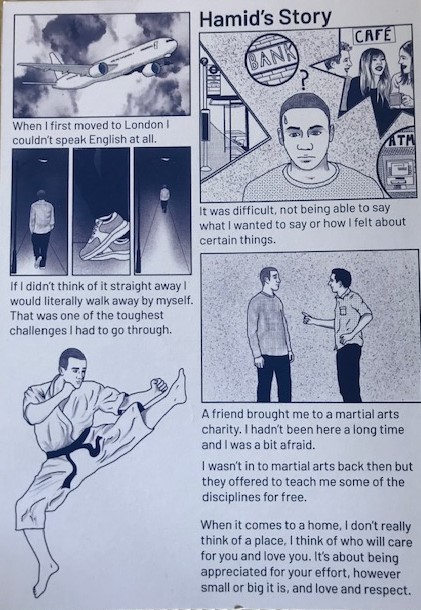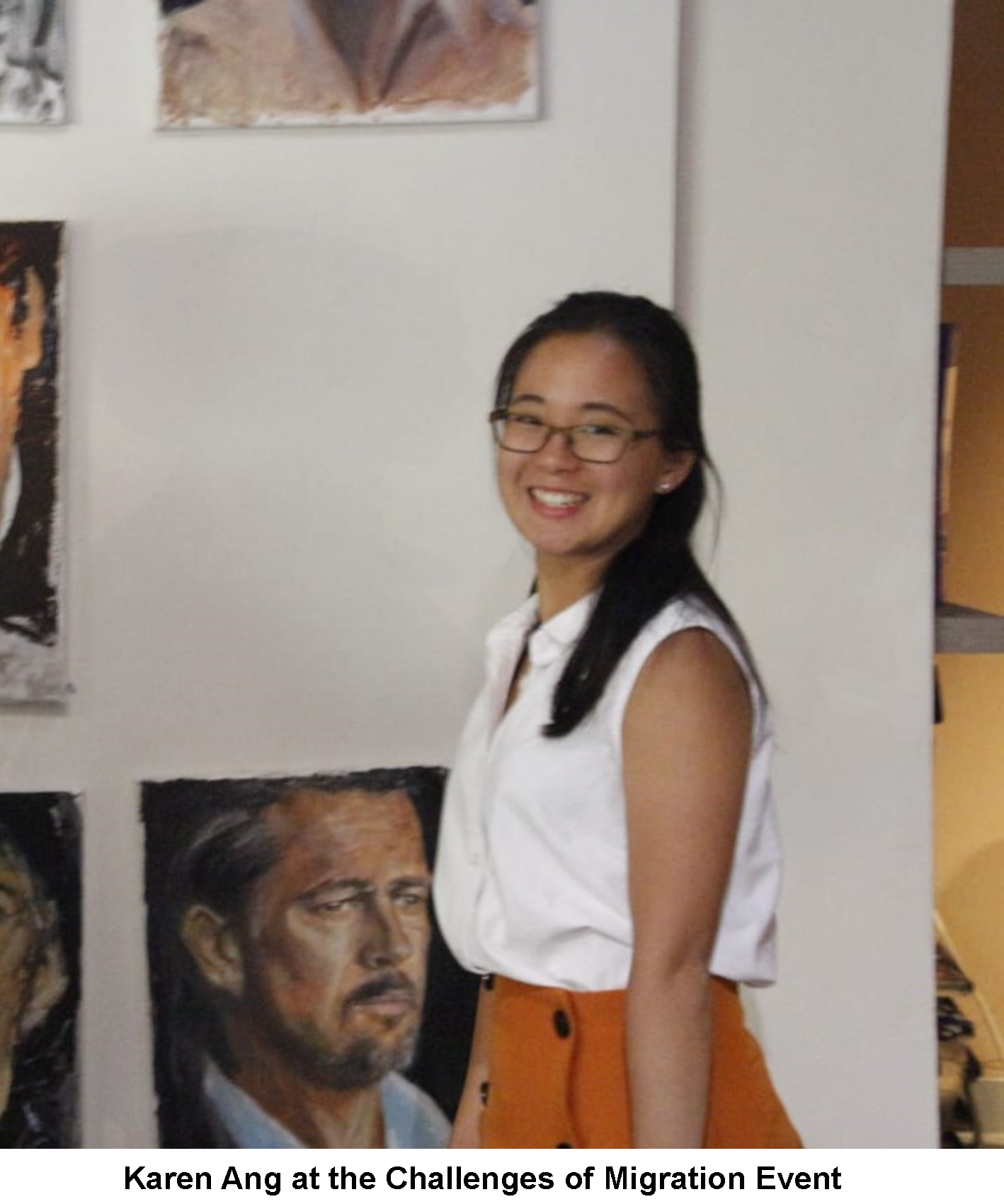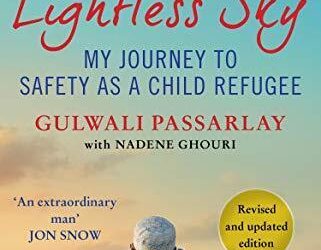Karen’s introduction to the research report given on July 10th at the Migration Museum

One of the many stories that came out of the research
Gain deep and meaningful insight from the key researcher for a TGIUK commissioned research on why migration matters, and why this study is vital to enable a better understanding of the lives of role of migrants as they adapt to our society.
My job here tonight is to talk about our research on the challenges we face as migrants, how we solve these challenges, and how we want to be helped. My role tonight is not to lecture, but to share our journey with you. My favourite kind of research isn’t about ego or credit, or citations metrics or authorship. My favourite kind of research is about asking the big, difficult questions that make us better at helping people who need help, the kind that lets us listen to the stories of other people.
This is why it was such a joy to conduct this research for Together in the UK. I was truly fortunate to be able to ask questions like ‘What challenges do migrants face when moving to the UK?’, ‘Why do some people find it more challenging than others?’ and ‘How do migrants want to be helped?’ and listen to all kinds of stories from all kinds of migrants from all kinds of sources. We looked at the published stories through research papers and reports. But as also looked at less formal sources – we looked at what migrants were saying online, where people anonymously shared their greatest fears and truest feelings.
This really gave us a flavour of what challenges migrants face when moving here – some of it confirmed our suspicions and anecdotal evidence, and some of it shed light on new aspects we hadn’t considered. Having grown up as a daughter of migrants, I didn’t need the literature to tell me that you can have language but not the understanding; neighbours but not community; a job but no career; accommodation but not a home; the NHS but no GP. Just some of the challenges my parents faced decades ago that are still just as relevant to migrants of today, as confirmed by our research.
Perhaps most importantly, looking at published work and online conversations told us about what we don’t know, the questions that researchers weren’t asking. How did migrants solve their problems? What is the importance of emotional support, as well as getting information? What is the best way to help?
These are just some of the questions we asked people who took part in our interviews and focus groups. We did ask them about their own joys and challenges of moving here – the anticipation of a new adventure and the isolation when you are far from your roots. But we also listened to how they soothed their pains – how grateful they were for the kindness of friends who corrected their pronunciation, how good colleagues provided practical and maybe more importantly emotional support, and how food that tastes of home warms the soul.
You have been a generous audience so far. I only have a little bit more to go. In my own field of healthcare, we always advocate helping people how they want to be helped. I was disheartened to find that there was virtually no research on how migrants want to be helped – lots of people has wanted to know what the challenges are, but no one had said “Tell us how we should help you.” In some ways, this was the most important part of our research, because it tells us how we need to act from now on. We were told that we needed to grow communities, to create networks that harbour emotional and practical support. We were told that problems and solutions cannot really be separated. For example, employment is more than income – it is a way to connect with people who can help, a way to fund a home, a way to improve English. And like so many things, we were told that the magic ingredient is trust – most of all, there is a need and want for safe places with no judgement and plenty of compassion.
I am running out of time, but my very last message is to say thank you to our participants who were brave enough to trust us with their stories, and to the mighty team of volunteers who could facilitate our research. I hope this has given you a blurb of the stories we collected as part of the research, and some hope that we can work together to help. Thank you for your time.
To read the whole report go to: http://www.togetherintheuk.co.uk/project/moving-matters/







